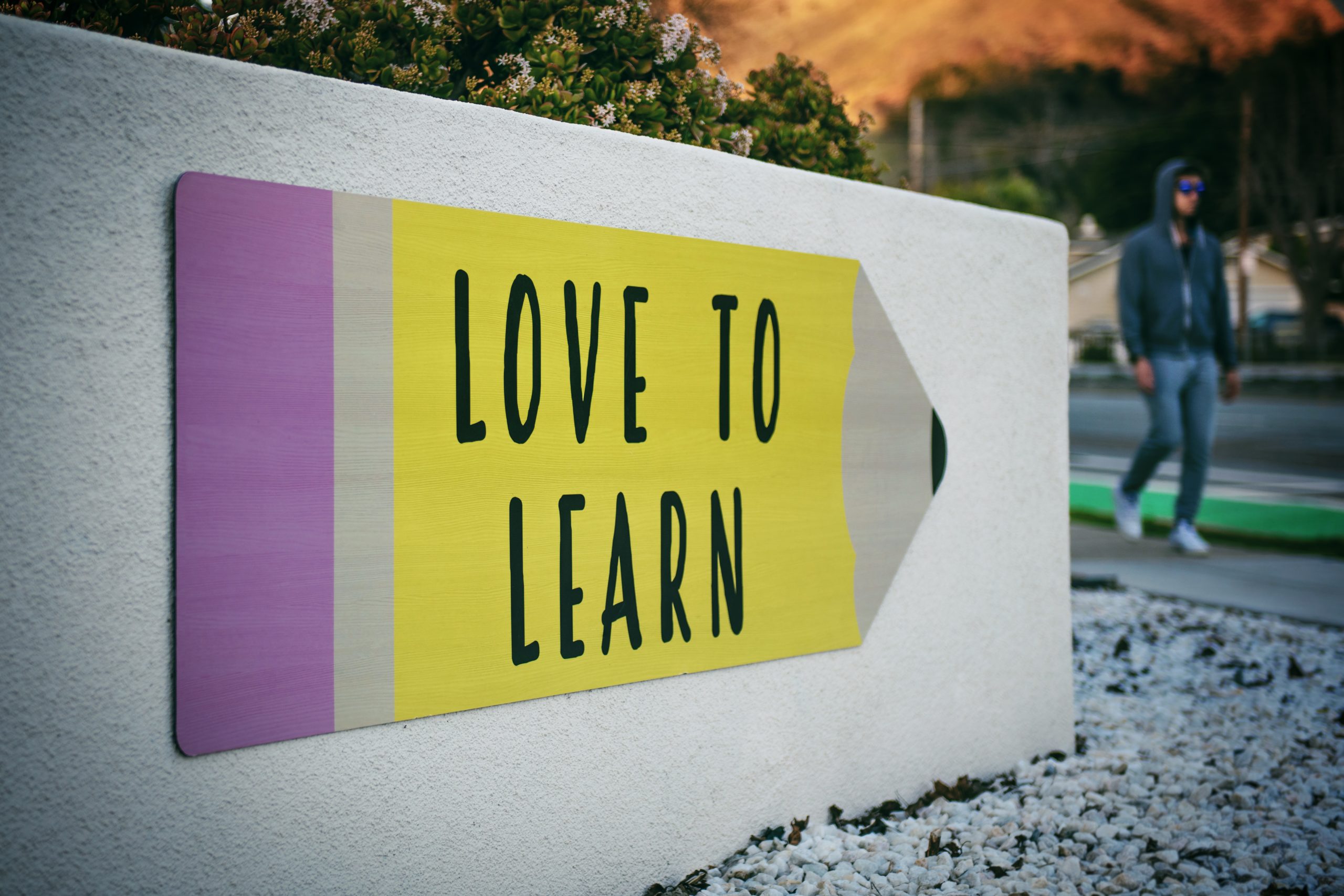Congratulations! You have landed your first teaching position! I know starting out as a new teacher can be both exhilarating and overwhelming. You are stepping into a role that will shape young minds; you will make a difference in student lives. No pressure, right? Fret not, I have been there, and as a veteran teacher, I have gleaned a few things over the years. I am sharing with you a short list of tips I wish I had implemented my first year of teaching. It is not meant to be “The List” for new teachers; there are so many great ideas out there, but I promise…these can help you. Take a look.
Befriend a Veteran
I think the most important piece of advice I could give you is to find a teacher or a group of teachers you can lean on and learn from this year. Reach out to your colleagues for advice, support, and collaboration. Even if the teacher next door has only been there for a year, he or she knows the answers to many of your questions about school procedures and policies. Building a network of fellow educators will provide you with a wealth of ideas and resources. Your new friend doesn’t have to be in your department, but I encourage you to find a teacher friend. Having a teacher bestie will help you in more ways than you know.
Collaborate and Seek Support: Teaching can sometimes feel isolating, but remember that you're not alone.
Ask Questions
As an educator, I value questions; I encourage my students to ask questions because they learn from questioning, but it turns out that, at least in my experience, asking a question can be hard. I think maybe we worry that we will look stupid for not knowing something. But here’s the thing: asking questions is actually a great way to reduce the amount of stress you’re feeling about a situation. So, don’t hesitate to ask. I promise you, someone else is wondering the same thing.
Plan, Plan, Plan:
A well-thought-out lesson plan is the backbone of successful teaching. Take the time to plan your lessons in advance, considering different learning styles and incorporating engaging activities. You’ll be surprised by the amount of behind the scenes planning a teacher needs to complete to ensure a high level of success. (I never knew how much planning went into a seating chart.) Flexibility is essential too, as you may need to adapt your plans based on student needs. The amount of planning an educator puts into each lesson will vary. The more planning you do, the easier it is to modify and adjust in the middle of a lesson.
Embrace Mistakes
Mistakes are part of the learning process, both for you and your students. Embrace them as opportunities for growth and learning. When you make a mistake, acknowledge it, and use it as a teaching moment. When I first began teaching, I was terrified to spell a word wrong on the board during the lesson. I didn’t want them to think I was dumb; I thought they wouldn’t trust me as their teacher if I made mistakes. Then I froze at the board and couldn’t spell the word ‘friend’. FRIEND?!? How does an English teacher forget how to spell such an easy word? But I had blanked on the i before e spelling rule, and I switched those pesky letters in front of my entire class of Sophomores. They laughed, and I decided to roll with it. Now, I am not as stressed if a goof up. It is a chance to prove teachers are human, too, and I am modeling a positive behavior for them. Sometimes we keep a tally of mistakes I make, and if I get to a specified number within a certain time frame, they get a reward. It becomes this great game of editing and revising.
Show your students that it's okay to stumble and that perseverance is key.
Be Solutions Oriented
Here’s a valuable tip when bringing up a problem: bring a solution along with it. Instead of just dwelling on the issue, try to come up with potential solutions or ideas. This not only shows proactive thinking but also helps you take ownership of the situation. You don’t want to be known as the person who complains without action, but a person who brings up a problem and has a possible idea of how to solve the problem is seen as solution oriented.
However, don’t be wary of coming to the table with an issue with no fix. There will be times that you need to collaborate with colleagues to find the solution. Perhaps you have already tried some ideas that didn’t work, and now you need help. Collaboration is one of the many reasons why teachers who support each other thrive, so bring that problem to the group and ask for input. I’m just cautioning against letting everyone else solve all the problems you complain about.
If you bring a problem, come with a solution.
Establish a Positive Classroom Culture
Creating a positive classroom environment is key to fostering learning and building strong relationships with your students. Set clear expectations from day one and be consistent in enforcing them. Trust me; it is much harder to establish expectations if you don’t do it from the start. It is doable, but it will be easier for you if you set those expectations for behavior and procedures when school starts. You may need to have a quick reset every once in a while if they get squirrly on you. I reestablish the expectations at the begining of each semester. It is also important to note that groups of students differ from year to year and even from class to class at the secondary level, so you will need to be flexible. The expectation can be the same; you just might need to be flexible in your approaches.
Quick Tip: Give your students a voice. Let them create a list of norms for their ideal classroom experience. They know what a great classroom looks like, so 9 times out of 10 they are going to give you a list that aligns with your expectation goals. You can still tailor the list some, but now they will have some ownership in the process. Student voice leads to greater student buy in.
Your expectations will be your own, but if you need a starting point, a goal for me is to always set a expectations to foster good a work ethic, as well as, to encourage kindness, respect, and inclusivity among your students.
Attitude Matters
I had a principal once who signed off the daily announcements with, “Make it a great day, or not, the choice is yours.” Not every day will be sunshine and smiley faces. Some days will just plain suck if I’m being honest. You cannot control other people; you cannot control every circumstance, but you 100% can control your own attitude and change your perspective. There are two critical reasons to consider your attitude:
- As the teacher, you set the mood for your classroom. Even if there are challenges or negative aspects, try not to let them consume you. Approach each day with a positive attitude, and avoid complaining about the circumstances. Your positive mindset will have a significant impact on your classroom environment, student behavior, and learning outcomes.
- You will have more fun. Who wants to go to work and be miserable? This is your career. You will spend more time at work than you do at home most days, and a positive attitude helps make it a place you want to be for you and those around you. I work with a fabulous lady in my current school who is the the epitome of the saying “throw kindness around like confetti.” She radiates positivity and my day is markedly better when she is around. Strive to be that person.
As I mentioned before, teachers are human, and unfortunately, every day will not be good; however, you can choose to find good in every day (and every person). Your attitude makes a difference.
Make it a great day, or not, the choice is yours.
.
Wayne Haver
SHS principal 1982-2018
Find the Good
Kids can be extremely intuitive. If you don’t like them, or they think you don’t like them, it affects how they perform in your class. In my experience, they will shut down, act out, or try to prove you wrong (even if they are proving you wrong, it is out of spite and not positive). On the flip side, I have seen a kid whom nobody believed in perform highly for a teacher who didn’t let the student’s past or their current poor attitude affect how the teacher felt about the student.
This happened to me with a student who transferred in to the school with failing grades and poor attitude. He was falling through the cracks because he wasn’t a blatant discipline problem; he just refused to work and was seen as lazy. He needed someone to “see” him and believe in him. When he had that, he was hooked and was able to pass all his classes. His belief in himself was partially fueled by the teacher’s attitude. With this in mind, I encourage you to reserve judgment for yourself; don’t listen to the warnings from colleagues regarding students you will get next year. Guard your attitude.
Celebrate Achievements
This tip is critical. For me, and many educators I know, it can be easy to get bogged down if progress seems stagnant or student behavior isn’t quite right. We became teachers because we want to make a difference and we tend to be our own worst critics if changes aren’t monumental. So here is my advice, take time to celebrate the milestones and achievements, both big and small. Acknowledge your students’ progress, and be proud of your own growth as a teacher.
If you are struggling with celebration, take a little time each day to record something positive. It doesn’t matter how insignificant you think it is; write it down. You will start seeing more and more successes. Celebrating achievements boosts morale and creates a positive atmosphere in the classroom.
Quick tip: When giving feedback to students, always include a GLOW and a GROW. In other words, find something positive to say, a GLOW, and an improvement they can make, a GROW.
Take Care of Yourself
I feel like teachers hear this statement way to often and, depending on presentation from admin, it can be sort of a sore spot. Teachers can often feel like they don’t have time for themselves without being selfish. If you have ever been on a plane, you were instructed by flight attendants if the oxygen masks fall from the ceiling, you are to put it on yourself before putting it on small children. If you are knocked out cold because you have no air, you will not be any good to those who depend on you. Please, take care of yourself.
Teaching can be demanding, and it’s crucial to prioritize self-care. Set boundaries and find a work-life balance that works for you. Make time for hobbies, relaxation, and connecting with loved ones. Remember, taking care of yourself enables you to be the best teacher you can be.
Best advice from my first year: Many new teachers volunteer for extra activities because they are afraid to say no. Your first year will be full of learning curves; be careful not to overload yourself. It is okay to say no.
Regardless of what this year brings, remember that you are embarking on an incredible journey as an educator. Embrace the challenges, seek support, and celebrate your successes along the way. You have the power to make a positive impact on the lives of your students, and if something doesn’t go as planned, remember, every day is a new day and another chance to start fresh. You got this. Now, go out there and be a difference maker!




Leave a Comment